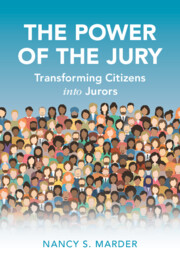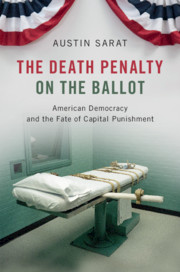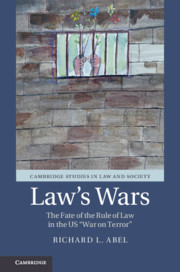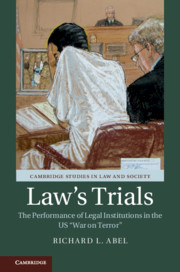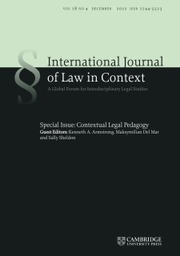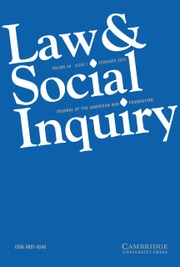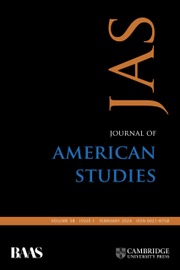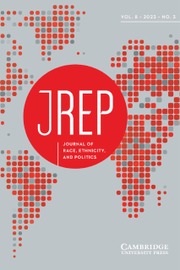The Power of the Jury
Transforming Citizens into Jurors
$34.99 (P)
Part of Cambridge Studies in Law and Society
- Author: Nancy S. Marder, Chicago-Kent College of Law
- Date Published: September 2022
- availability: Available
- format: Paperback
- isbn: 9781108704793
$
34.99
(P)
Paperback
Other available formats:
Hardback, eBook
Looking for an examination copy?
This title is not currently available for examination. However, if you are interested in the title for your course we can consider offering an examination copy. To register your interest please contact [email protected] providing details of the course you are teaching.
-
Offering an alternative view of the jury process, this book argues that each stage transforms ordinary citizens, who are oftentimes reluctant to serve on juries, into responsible jurors. Jurors, Professor Marder argues, are not found, but rather they are made and shaped by the jury process. This book analyzes each stage of this process, from initial summons to post-verdict interview, and shows how these stages equip jurors with experiences and knowledge that allow them to perform their new role ably. It adopts a holistic approach to the subject of jury reform and suggests reforms that will aid the transformation of citizens into jurors. By studying the jury from the perspective of jurors, it gives readers a better understanding of what takes place during jury trials and allows them to see juries, jurors, and the jury process in a new light.
Read more- Studies the jury from the jurors' perspective, outlining every stage of the jury process and how these stages transform often reluctant participants into responsible jurors
- Takes a holistic approach to jury reform, demonstrating that any reform must contribute to the transformation of citizens into jurors
- Offers an alternative, transformational view of the jury process, allowing readers to observe the jury process in a new light
Reviews & endorsements
'Marder's book is a timely and original account of one of our most important institutions. It begins with a broad reimagining of the transformation of ordinary citizens into responsible jurors. It then moves deftly to a host of reforms that would serve concretely to embody this compelling vision. It is the distillation of decades of serious thought.' Robert P. Burns, Professor, Northwestern University School of Law
See more reviews'Professor Nancy S. Marder provides a unique and inspirational look at how juries are made. Her perspective on becoming a juror explains why serving as a juror can be such a meaningful experience and why juries are so successful in dealing with the challenging problems society asks them to solve.' Shari Seidman Diamond, Howard J. Trienens Professor of Law, Northwestern Pritzker School of Law/American Bar Foundation
'Professor Nancy S. Marder has written a meticulously researched, comprehensive, and powerful account of how the jury trial process transforms ordinary people into responsible jurors. This compelling book of citizen transformation forces us to rethink our traditional ideas about the jury trial process. A tour de force!' Valerie P. Hans, Charles F. Rechlin Professor of Law, Cornell Law School
Customer reviews
Not yet reviewed
Be the first to review
Review was not posted due to profanity
×Product details
- Date Published: September 2022
- format: Paperback
- isbn: 9781108704793
- length: 225 pages
- dimensions: 228 x 151 x 16 mm
- weight: 0.44kg
- availability: Available
Table of Contents
Introduction
1. The summons and the setting: Beginning the transformation of citizens into jurors
2. Voir Dire: Introducing jurors to the judge, their fellow jurors, and their role
3. Peremptory challenges: A barrier that unnecessarily limits who can serve as jurors
4. Jury instructions: Reinforcing group identity and making instructions accessible to jurors
5. Jury deliberations: Performing the jury's main task with occasional assistance from the judge
6. The post-verdict interview: How judges can help jurors in their transformation from jurors to engaged citizens
Conclusion.
Sorry, this resource is locked
Please register or sign in to request access. If you are having problems accessing these resources please email [email protected]
Register Sign in» Proceed
You are now leaving the Cambridge University Press website. Your eBook purchase and download will be completed by our partner www.ebooks.com. Please see the permission section of the www.ebooks.com catalogue page for details of the print & copy limits on our eBooks.
Continue ×Are you sure you want to delete your account?
This cannot be undone.
Thank you for your feedback which will help us improve our service.
If you requested a response, we will make sure to get back to you shortly.
×
